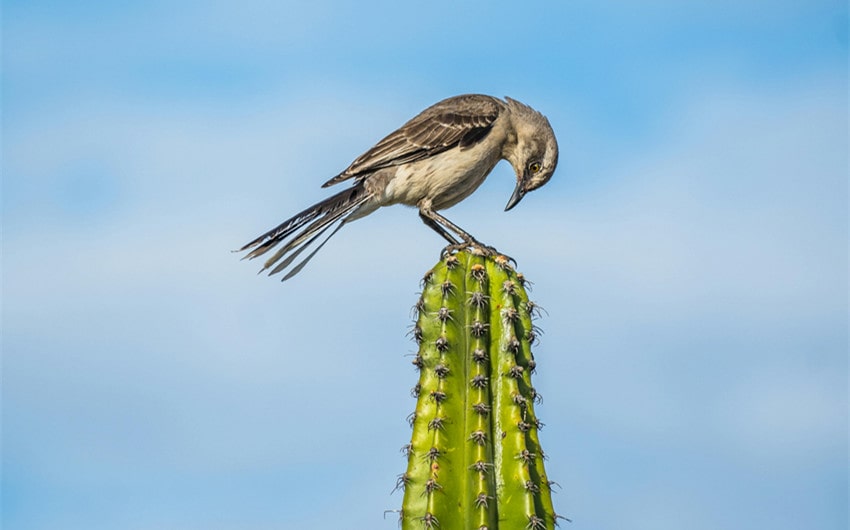5 Key Insights Into the Mockingbird’s Spiritual Meaning
Mockingbirds are more than just talented mimics; they hold a deep spiritual presence that resonates across cultures and beliefs. Known for their unique songs and fearless nature, these birds are often associated with themes of self-expression, courage, and joy. If you’ve ever wondered about the mockingbird’s spiritual meaning, you’re not alone—many find inspiration and guidance in their symbolism.
In this article, we’ll explore how mockingbirds represent adaptability, protection, and individuality, and why they’ve become a powerful spiritual symbol for people seeking meaning and connection in their lives. Let’s uncover the significance behind these remarkable creatures.
Spiritual Meaning of the Mockingbird
The mockingbird holds a unique place in spiritual symbolism, representing a variety of profound themes that resonate deeply across different aspects of life. Its behaviors, vocal abilities, and fearless nature inspire lessons in individuality, adaptability, and courage. Below, we explore the key spiritual meanings of the mockingbird:
1. Finding Your Voice
The mockingbird’s ability to mimic the sounds of other birds is its most famous trait, but spiritually, this mimicry symbolizes finding and expressing your true voice. The mockingbird teaches us to embrace our individuality while learning from others.
- Lesson in Self-Expression: Just as the mockingbird blends different songs into its own unique melody, we are encouraged to take inspiration from our experiences and use them to create something uniquely ours.
- Standing Out in the Crowd: The mockingbird’s song reminds us that our voice has value, and we should never hesitate to share it with the world.
2. Adaptability
Mockingbirds thrive in various environments, from bustling cities to serene countryside landscapes, symbolizing their incredible adaptability. Spiritually, they remind us of the importance of being flexible and finding ways to succeed no matter the circumstances.
- Thriving Through Change: The mockingbird’s resilience in different habitats reflects our ability to adapt to life’s challenges and maintain our inner strength.
- Lesson in Versatility: By embracing change and learning new “songs,” we can grow and thrive in unfamiliar situations, just like the mockingbird.
3. Protection
Despite their small size, mockingbirds are fiercely protective of their nests and young. This courage represents spiritual guardianship and the importance of standing up for what matters.
- Fearless Defense: Mockingbirds will confront much larger animals or threats to protect their territory, teaching us to guard our values, loved ones, and personal boundaries.
- Spiritual Guardian: Seeing a mockingbird can serve as a reminder to be vigilant and courageous in protecting the things that matter most to us.
4. Joy and Innocence
Mockingbirds are often associated with lightheartedness and purity. Their cheerful songs and playful behavior bring a sense of joy and uplift those who encounter them.
- Positive Energy: Their song is a symbol of happiness and serves as a reminder to find joy in the simple moments of life.
- Innocence: The mockingbird’s unassuming presence reflects a sense of purity and honesty, encouraging us to embrace our authentic selves.
5. Creativity and Connection
The mockingbird’s ability to replicate sounds from its surroundings signifies a deep connection to the world. Spiritually, this mirrors the power of creativity and the importance of building meaningful relationships.
- Inspiration Through Imitation: While mimicry might suggest copying, it’s also a form of learning and creating something new—a spiritual nudge to draw inspiration from the world and channel it creatively.
- Strengthening Bonds: Mockingbirds’ communicative abilities symbolize the importance of fostering connections and understanding others.
Mockingbirds in Different Cultures and Beliefs
Mockingbirds hold spiritual and cultural significance across many traditions, symbolizing traits like communication, protection, and purity. Their mimicry and fearless nature make them unique symbols of resilience and expression. Here’s how different cultures interpret them:
1. Native American Symbolism
In Native American traditions, the mockingbird represents storytelling, wisdom, and adaptability.
- Messenger and Teacher: Its mimicry reflects the importance of learning and sharing wisdom from diverse sources.
- Spirit Guide: Mockingbirds are seen as guides, helping individuals find their voice and navigate challenges.
- Symbol of Resilience: Their ability to thrive in various environments symbolizes adaptability and survival.
2. Christian Beliefs
In Christianity, mockingbirds are symbols of innocence and divine messages.
- Harmlessness and Purity: They are seen as creatures that sing joyfully without causing harm, representing a life free of malice.
- Spiritual Protection: Their fearless defense of their nests aligns with Christian values of protecting the vulnerable and standing up for what’s right.
- Signs of Divine Guidance: Their songs are often interpreted as reminders of God’s grace.
3. Folklore and Literature
Mockingbirds frequently appear in folklore and literature as symbols of truth, protection, and justice.
- In Folklore: Revered for their melodious songs, they are often seen as bringers of good luck and protectors of innocence.
- In Literature: In To Kill a Mockingbird by Harper Lee, they symbolize innocence and the moral duty to protect those who bring joy and goodness.
- Truth and Resilience: Mockingbirds universally represent the courage to stand firm in one’s convictions.









